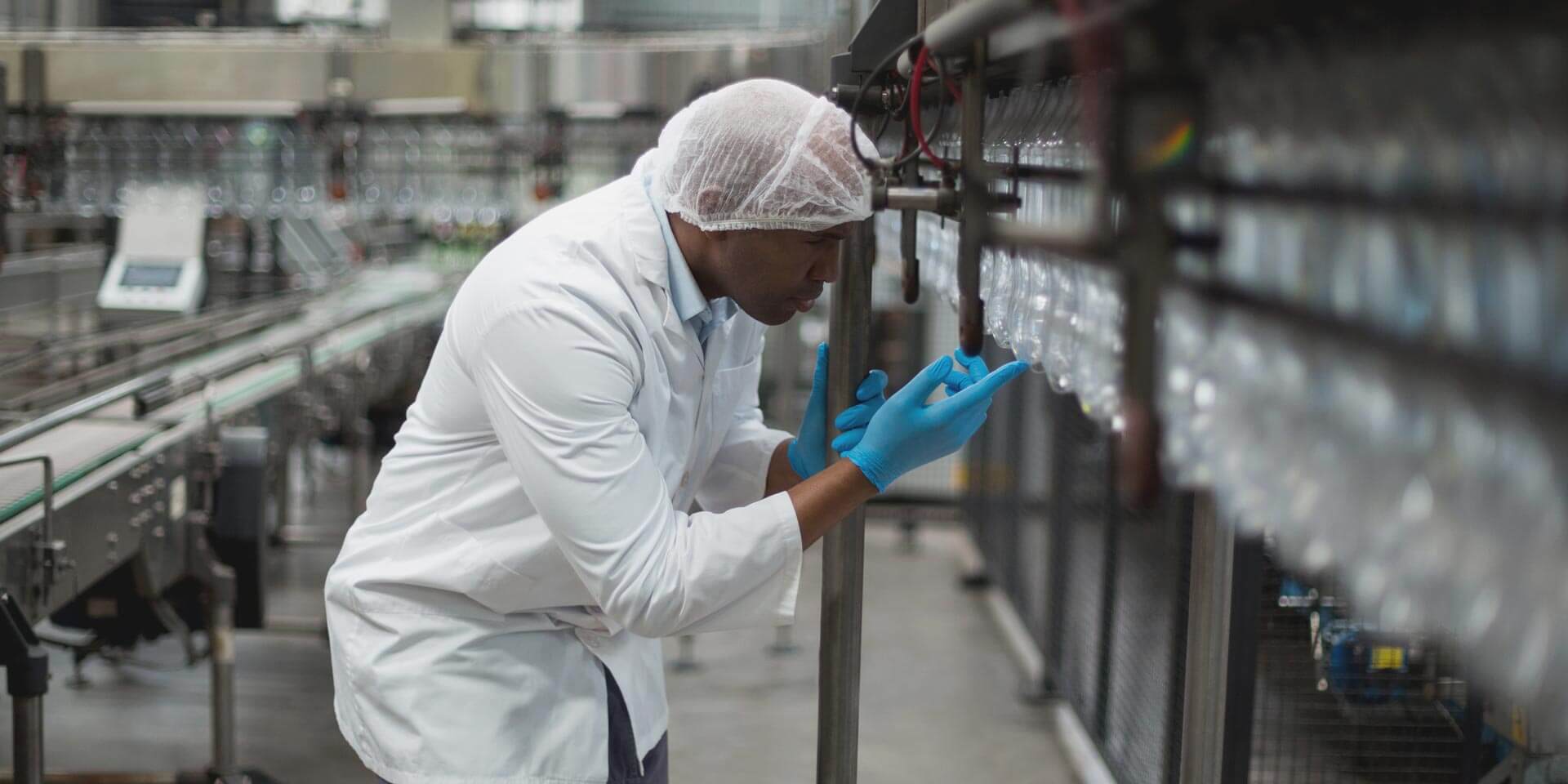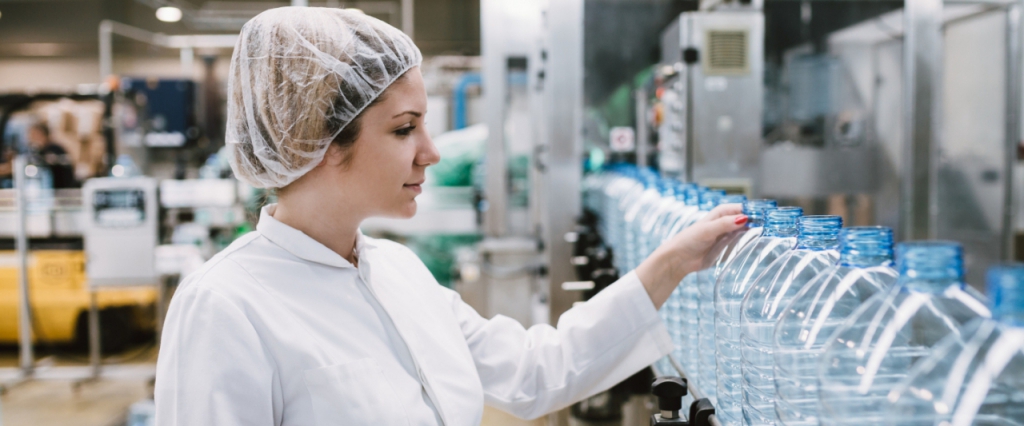In today's modern society, plastic products have become an integral part of our daily lives. They serve a wide range of purposes, from packaging materials to essential household items and advanced medical equipment. With the increasing demand for plastic products, many individuals are considering if is plastic products a good career path.
However, it is important to critically assess whether a careerin plastic products is a good path to pursue. This article aims to explore the pros and cons of a career in plastic products, shedding light on the opportunities and challenges that professionals in this field may encounter.
Is Plastic Products A Good Career Path?

Is Plastic Products A Good Career Path?
Plastic products can offer a promising career path for individuals. Here are some key points to consider when evaluating whether a career in plastic products is a good fit:
- Industry Growth and Stability -The plastic industry has experienced significant growth and continues to expand due to the high demand for plastic products across various sectors. This growth provides stability and potential career advancement opportunities.
- Diverse Career Options -The plastic industry offers a wide range of career options, including research and development, manufacturing, marketing, sales, and quality control. This diversity allows individuals to find roles that align with their interests and skills.
- Technological Advancements -The industry is constantly evolving and embracing new technologies. Innovations in materials, manufacturing techniques, and sustainability practices offer exciting opportunities for professionals to stay at the forefront of technological advancements.
- Global Relevance -Plastic products have a global impact, and companies involved in their production often operate on an international scale. This global relevance opens doors for collaboration with diverse teams and the potential for cross-cultural experiences.
However, it is important to consider some potential challenges associated with a career in plastic products:
- Environmental Concerns -Plastics, especially single-use and non-biodegradable variants, have raised concerns regarding pollution, waste management, and their impact on the environment. Professionals in the industry may face scrutiny and the need to address sustainability issues.
- Public Perception -With increased awareness of environmental issues, some consumers are seeking alternatives to plastic. The industry's negative perception may create challenges in meeting evolving consumer demands and adapting to sustainable practices.
- Technological Disruptions -The development of alternative materials, such as bioplastics, poses a potential threat to traditional plastic production. Professionals must stay updated with emerging trends and be willing to adapt to new technologies to remain competitive.
- Occupational Hazards -Certain roles within the plastic industry, particularly in manufacturing settings, may expose individuals to occupational hazards. Proper safety measures must be implemented to ensure the well-being of workers.
Individuals should weigh the pros and cons, considering their personal values, interests, and goals when deciding if a career in plastic products is the right path for them. By staying informed, embracing sustainability, and actively contributing to positive change, professionals can navigate the challenges and make a positive impact within the industry.
What Is Plastic Products Industry?
The plastic products industry refers to the sector involved in the production, manufacturing, and distribution of various products made from plastic materials. It encompasses a wide range of items that are used in various aspects of daily life, including packaging materials, consumer goods, construction materials, automotive parts, electronic components, medical devices, and more.
The industry encompasses several stages of production, starting from the raw materials used to create plastic polymers, such as polyethylene, polypropylene, polystyrene, and PVC. These polymers are then processed through various techniques, including injection molding, extrusion, blow molding, and thermoforming, to shape them into the desired products.
The plastic products industry is diverse and covers a broad spectrum of sectors, including packaging, construction, automotive, electronics, healthcare, and many others. Companies within the industry may specialize in specific product categories or cater to multiple sectors, depending on their capabilities and market focus.
The industry is driven by factors such as consumer demand, technological advancements, sustainability initiatives, and regulatory requirements. It plays a vital role in modern society, providing essential items and contributing to various sectors' growth and development.
As the industry evolves, there is an increasing focus on sustainable practices, recycling, and the development of biodegradable or bio-based alternatives to traditional plastics. These efforts aim to address environmental concerns associated with plastic waste and promote a more sustainable future for the industry.
How To Get Started In A Career In Plastic Products?
Getting started in a career in plastic products requires a combination of education, practical experience, and networking. Here are some steps you can take to embark on a career in this field:
- Research and Education -Begin by researching the plastic products industry to gain a deeper understanding of its various sectors, job roles, and career paths. Consider pursuing relevant education, such as a degree in polymer science, materials engineering, chemical engineering, or a related field. Specialized courses or certifications in plastics technology or manufacturing can also provide a solid foundation.
- Gain Practical Experience -Seek opportunities to gain practical experience in the industry. Look for internships, co-op programs, or entry-level positions in plastic product manufacturing companies or related industries. This hands-on experience will provide valuable insights into manufacturing processes, quality control procedures, and industry practices.
- Networking and Professional Associations -Join professional associations and organizations related to the plastics industry. Attend conferences, seminars, and industry eventsto network with professionals and learn about the latest advancements in the field. Engaging with industry experts and building connections can open doors to job opportunities and mentorship.
- Develop Technical Skills -Acquire technical skills relevant to the plastic products industry. Familiarize yourself with manufacturing processes such as injection molding, extrusion, blow molding, and thermoforming. Develop proficiency in using design software and quality control tools used in the industry.
- Stay Updated -Keep up with the latest trends, innovations, and sustainability initiatives within the industry. Stay informed about advancements in materials, recycling technologies, and regulations related to plastic products. This knowledge will give you a competitive edge and demonstrate your commitment to the industry.
- Specialize and Seek Advancement- As you gain experience, consider specializing in a specific area of plastic products, such as research and development, process engineering, quality control, or sustainability. Continuously seek professional development opportunities, advanced certifications, or higher education to enhance your skills and qualify for higher-level positions.
- Network and Seek Mentorship -Cultivate professional relationships and seek mentorship from experienced professionals in the industry. They can provide guidance, advice, and insights into career progression opportunities. Attend industry conferences, join online communities, and engage in networking platforms to expand your network.
Remember that building a successful career in the plastic products industry takes time and dedication. Embrace continuous learning, adapt to industry changes, and leverage your skills and experiences to pursue opportunities for growth and advancement.
What Are The Benefits Of A Career In Plastic Products?
A career in plastic products can offer several benefits. Here are some advantages of pursuing a career in this field:
- Industry Growth and Stability -The plastic products industry has experienced significant growth and continues to expand due to the high demand for plastic materials across various sectors. This growth provides job security and stability for professionals entering the field.
- Diverse Career Opportunities -The industry offers a wide range of career options and roles. From research and development to manufacturing, quality control, sales, marketing, and sustainability, there are diverse paths to explore. This allows individuals to find positions that align with their interests, skills, and expertise.
- Technological Advancements and Innovation -The plastic products industry is constantly evolving and embracing new technologies. Advancements in materials, manufacturing techniques, and recycling technologies create exciting opportunities for professionals to work on cutting-edge projects and contribute to innovative solutions.
- Global Relevance and Collaboration -Plastic products have a global impact, and many companies involved in their production operate on an international scale. This offers opportunities for professionals to collaborate with diverse teams, work on multinational projects, and gain cross-cultural experiences.
- Personal and Professional Development -A career in plastic products can provide opportunities for personal and professional growth. Professionals can acquire specialized skills, knowledge, and expertise in areas such as materials science, product design, process optimization, and sustainability. Continuous learning and skill development are inherent to the industry.
- Contribution to Sustainability - While the industry faces challenges related to plastic waste and environmental concerns, it also offers opportunities to drive positive change. Professionals can contribute to sustainable practices, work on recycling and circular economy initiatives, and develop eco-friendly alternatives to traditional plastics.
- Job Versatility and Mobility -Skills gained in the plastic products industry can be transferable across various sectors. Professionals can explore opportunities in packaging, automotive, electronics, healthcare, and other industries that rely on plastic products. This versatility provides flexibility and opens doors to different career paths.
- Impact on Everyday Life -Plastic products have become an integral part of modern life, serving essential roles in numerous applications. Professionals in the industry have the satisfaction of knowing that their work directly impacts people's lives, whether it's through packaging solutions, medical advancements, or technological innovations.
10 Best Paying Jobs In The Plastics Industry
The plastics industry offers various high-paying job opportunities across different sectors. Here are 10 well-paying jobs in the plastics industry:
- Plastics Engineer -Plastics engineers specialize in the design, development, and manufacturing of plastic products. They work on creating efficient production processes and optimizing material properties. Salaries for plastics engineers can range from $70,000 to $120,000 per year, depending on experience and expertise.
- Plastics Research Scientist -Research scientists in the plastics industry focus on developing new materials, improving existing formulations, and exploring innovative technologies. Their work contributes to advancements in materials science and product development. Salaries for plastics research scientists typically range from $80,000 to $150,000 per year.
- Plastics Production Manager -Production managers oversee the manufacturing processes of plastic products, ensuring efficient operations and quality control. They coordinate production schedules, manage teams, and optimize productivity. Salaries for plastics production managers can vary but often range from $70,000 to $120,000 per year.
- Plastics Sales Manager -Sales managers in the plastics industry are responsible for developing sales strategies, managing client relationships, and driving revenue growth. They work closely with customers, distributors, and internal teams. Salaries for plastics sales managers can range from $80,000 to $150,000 or more per year, depending on the company and sales targets.
- Plastics Quality Control Manager -Quality control managers in the plastics industry ensure that products meet rigorous quality standards. They develop and implement quality control processes, conduct inspections, and address any quality-related issues. Salaries for plastics quality control managers typically range from $70,000 to $120,000 per year.
- Plastics Process Engineer -Process engineers focus on optimizing manufacturing processes in the plastics industry. They analyze and improve production methods, troubleshoot issues, and implement efficiency enhancements. Salaries for plastics process engineers can range from $70,000 to $120,000 per year.
- Plastics Design Engineer -Design engineers in the plastics industry are responsible for creating product designs, conducting simulations, and collaborating with cross-functional teams to develop innovative plastic products. Salaries for plastics design engineers typically range from $65,000 to $110,000 per year.
- Plastics Technical Sales Representative -Technical sales representatives promote and sell plastic products to clients. They provide technical expertise, support customer needs, and negotiate contracts. Salaries for plastics technical sales representatives can vary but often range from $60,000 to $120,000 or more per year, including commissions and bonuses.
- Plastics Tooling Engineer -Tooling engineers specialize in designing and developing molds, dies, and other tooling equipment for plastic product manufacturing. They ensure the efficient production of high-quality plastic components. Salaries for plastics tooling engineers can range from $65,000 to $110,000 per year.
- Plastics Operations Director -Operations directors oversee the overall operations and strategic planning for plastics manufacturing facilities. They manage teams, ensure efficient production, optimize processes, and drive profitability. Salaries for plastics operations directors can vary significantly but often range from $100,000 to $200,000 or more per year, depending on the company size and responsibilities.
How To Select The Correct Plastic Products Profession?
Selecting the correct plastic products profession involves considering your skills, interests, career goals, and the opportunities available in the industry. Here are some steps to help you make an informed decision:
- Self-Assessment -Begin by evaluating your skills, strengths, and interests. Identify your technical abilities, problem-solving skills, creativity, and areas of expertise. Consider your preferred work environment, whether it's research and development, manufacturing, quality control, sales, or management.
- Research Career Options -Conduct thorough research on different careers within the plastic products industry. Explore job descriptions, required qualifications, responsibilities, and potential growth opportunities for each role. Consider how your skills and interests align with these careers.
- Education and Training -Determine the educational requirements for your desired profession. Research academic programs, certifications, and specialized training courses that can help you develop the necessary skills and knowledge. Consider pursuing degrees in areas such as polymer science, materials engineering, or related fields.
- Industry Trends and Job Market -Stay updated on industry trends, emerging technologies, and market demands within the plastic products sector. Evaluate the job market for various professions to ensure there are sufficient opportunities and potential for career growth.
- Networking and Mentorship -Engage with professionals in the plastic products industry through networking events, professional associations, and online communities. Seek mentorship from experienced individuals who can provide guidance and insights into different career paths. Their advice can help you make informed decisions.
- Internships and Hands-on Experience -Gain practical experience through internships, co-op programs, or entry-level positions. This hands-on experience will allow you to understand the day-to-day responsibilities, challenges, and rewards of different professions within the industry. It will also help you develop industry connections and enhance your skills.
- Evaluate Personal Goal -Consider your long-term career goals and aspirations. Determine whether a specific plastic products profession aligns with your values, work-life balance preferences, and desired level of responsibility. Reflect on whether the profession offers opportunities for advancement, skill development, and personal fulfillment.
- Seek Advice and Feedback -Consult with career counselors, industry professionals, and mentors to seek their advice and feedback. They can provide insights based on their experiences and help you weigh the pros and cons of different career options.
- Continuous Learning and Adaptability -The plastic products industry is constantly evolving, with new technologies and materials being introduced. Ensure that your chosen profession allows for continuous learning and growth. Be open to adapting your skills and knowledge to stay relevant in the industry.
Why Choose The Plastic Products Career?

A Career in Plastics - Engineering
Choosing a career in plastic products can offer several compelling reasons. Here are some key reasons why individuals may opt for a career in this field:
- Industry Growth and Stability -The plastic products industry has experienced significant growth and is expected to continue expanding in the future. This growth provides stability and a multitude of career opportunities for individuals entering the field.
- Diverse Career Options -The plastic products industry offers a wide range of career options across various sectors. Whether you're interested in research and development, manufacturing, quality control, sales, marketing, or sustainability, there are diverse paths to explore. This allows individuals to find positions that align with their interests, skills, and expertise.
- Technological Advancements and Innovation -The plastic products industry is at the forefront of technological advancements and innovation. From new materials and manufacturing techniques to sustainable practices and recycling technologies, there are ample opportunities to work on cutting-edge projects and contribute to groundbreaking solutions.
- Global Relevance and Impact -Plastic products have a global impact and are used in countless applications worldwide. By working in the industry, professionals can contribute to improving everyday life, whether through innovative packaging solutions, advancements in healthcare, or technological innovations. This global relevance offers a sense of purpose and the opportunity to make a positive impact.
- Transferable Skills -Skills gained in the plastic products industry are often transferable across different sectors. This versatility allows individuals to explore career opportunities not only within the plastic industry but also in related industries such as packaging, automotive, electronics, and healthcare. The ability to apply your skills in various settings can provide flexibility and open doors to different career paths.
- Sustainability and Environmental Focus -While the industry faces challenges related to plastic waste and environmental concerns, it also presents an opportunity to drive positive change. Many professionals within the industry actively work on sustainability initiatives, including the development of biodegradable materials, recycling programs, and circular economy practices. By contributing to sustainable practices, professionals can make a difference and help shape a more environmentally conscious future.
- Continuous Learning and Growth -The plastic products industry is constantly evolving, with new technologies, materials, and market demands. Choosing a career in this field offers the chance for continuous learning, skill development, and personal growth. Individuals can stay updated with emerging trends, engage in professional development opportunities, and stay at the forefront of industry advancements.
- Economic Contribution -The plastic products industry plays a vital role in the economy, creating job opportunities and driving economic growth. By working in this field, individuals can contribute to economic development and prosperity on both local and global scales.
People Also Ask
How Can I Enter The Plastic Products Industry Without Prior Experience?
To enter the plastic products industry without prior experience, consider pursuing relevant education or training programs, networking with professionals in the field, and seeking entry-level positions or internships to gain hands-on experience.
Are There Opportunities For Career Growth In The Plastic Products Industry?
The plastic products industry offers opportunities for career growth. As the industry expands, professionals can advance through specialized roles, managerial positions, or by acquiring additional qualifications or certifications.
What Are The Prospects For A Sustainable Career In Plastic Products?
The plastic products industry is increasingly focusing on sustainability and environmentally friendly practices. Professionals with expertise in sustainable materials, recycling, and circular economy concepts can find promising career prospects in this evolving landscape.
Conclusion
A career in plastic products offers a multitude of opportunities for professionals seeking growth and stability. The industry's continuous expansion, diverse career options, and embrace of technological advancements make it an appealing choice for many individuals.
As with any career path, individuals should carefully consider their personal values, interests, and goals to determine whether a career in plastic products aligns with their aspirations and priorities. By making an informed decision, one can navigate the complexities of the industry and contribute to its ongoing transformation toward a more sustainable and responsible future.


